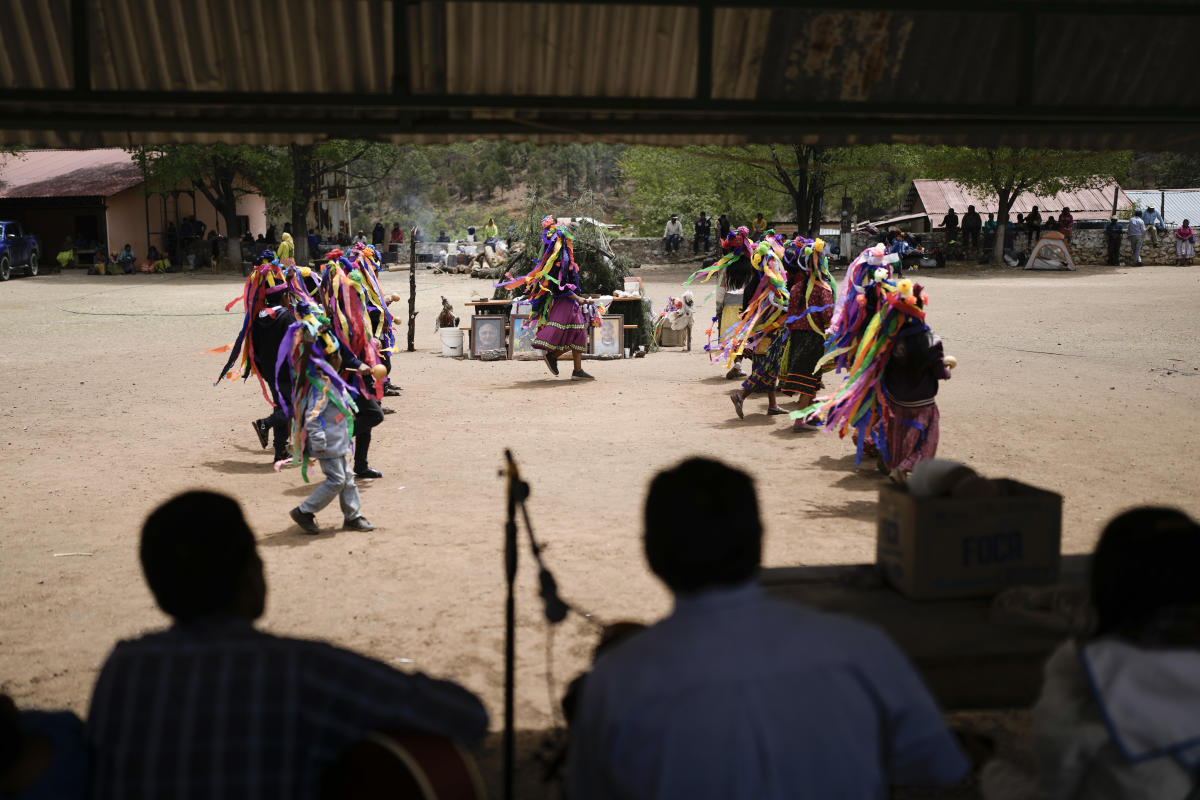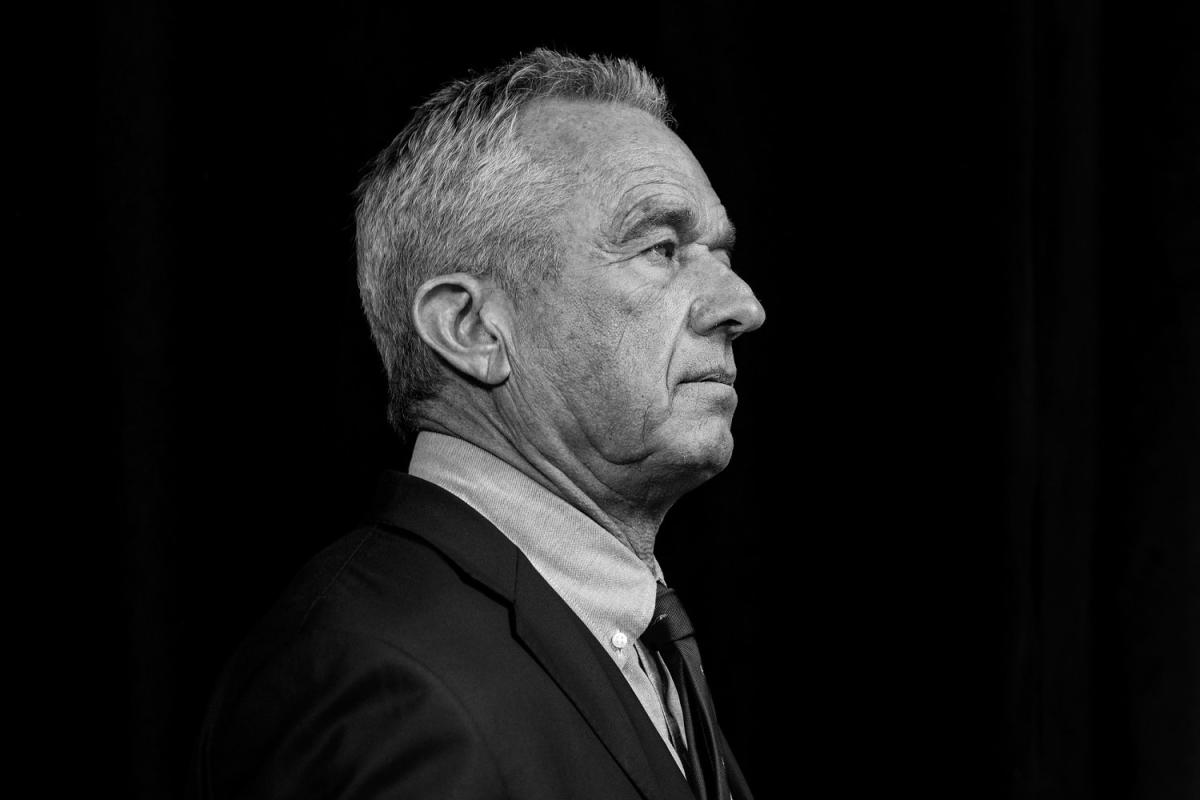CHIHUAHUA, México (AP) — José Portillo Gil, the gang leader known as “El Chueco” — the Crooked One — lowered his gun. The Rev. Jesús Reyes then spoke what he feared could be his last words: Please do not take the bodies of my brothers.
Beside him, at the altar of his church in northern Mexico, Jesuit priests Javier Campos, 79, and Joaquín Mora, 80, lay in a pool of blood.
“I almost felt the bullets going through my body,” said Reyes, who survived the attack without being shot.
The killings took place in Cerocahui in mid-2022, but grief over the crimes has not subsided in communities in the remote Tarahumara Mountains. Catholic leaders’ demands for peace have not subsided either.
Since coming to power in 2018, President Andrés Manuel López Obrador has avoided direct confrontation with cartels and violent gangs that control and terrorize local communities. His “hugs, no bullets” policy has drawn widespread criticism from faith leaders, human rights groups and journalists who have echoed the fear and anger of the victims.
Organized crime has long controlled large swaths of territory in states such as Guerrero and Michoacan. Many people have been driven from rural villages in Chiapas by warring cartels and some 20 candidates have been murdered in the run-up to the June 2 elections.
Presidential frontrunner and ruling party candidate Claudia Sheinbaum hesitantly met with representatives of the Mexican bishops’ conference. And while she agreed to sign a peace declaration proposing strategies to reduce violence in Mexico, the 61-year-old said she did not share the bishops’ “pessimistic assessment” of the current situation.
“In the time I was here in the Tarahumara, I have never experienced such difficult times,” said Reyes, whose hearing was severely damaged by the gunfire.
Like some other organized crime leaders, El Chueco, who had ties to the Sinaloa Cartel, controlled the local beer market. He financed bars and a baseball team and had a say in local elections and police directions.
“We had no security and peace,” Reyes said. “We were always scared because he even showed up at parties and weddings.”
Hours before El Chueco stormed into the church, enraged by his baseball team’s defeat in a game, he shot one of the players and burned his house to the ground. He then went to a hotel, where tourist guide Pedro Palma had just dropped off foreign tourists, and asked El Chueco to behave. Palma was also shot and later taken to church.
“Father Joaquín had just applied the holy anointing on him when he (El Chueco) suddenly took out his gun and shot him twice,” Reyes said. “Then Father Javier looked at him as if to say, ‘What have you done?’ and he also shot him twice.
National Guard members established a permanent base in Cerocahui in response to the killings, and the military remained in the area after El Chueco was found dead in 2023. But that has not stopped locals from leaving their homes to flee the violence and death.
“Here in the mountains, many communities have been displaced by organized crime,” said Azucena González, a teacher from the nearby town of Creel who works at a shelter for women in high-risk situations. “We take in many families where the husband has been murdered and the wife cannot stay.”
González’s birthplace has a bloody history.
In 2008, shortly after then-President Felipe Calderon declared a war on drugs, sparking nationwide violence, gunmen opened fire on a group of locals hanging out in a public square. Thirteen people, including a baby, were killed in the massacre.
It was a hellish scene, said Javier Ávila, another Jesuit priest who has worked in the region since the 1970s and promptly arrived at the scene of the massacre.
“Bodies were everywhere,” Ávila said. “But no signs of the police.”
Instead of praying, he contacted local authorities and demanded security support. He asked the families not to touch the bodies or alter the crime scene. He took night walks to send a message: “I’m not afraid and I’m not leaving.”
Among the inhabitants of the Tarahumara Mountains, especially within the indigenous Raramuri people, priests such as Ávila, Reyes and the murdered Jesuits are often regarded as much-loved figures who fearlessly offered comfort and assistance.
Deep in the Sierra, where no roads or telephone signal are available, Rev. Javier Campos worked closely with impoverished communities. For his famous imitation of a rooster he was nicknamed ‘Father Gallo’.
Many locals remember him baptizing their children or confirming their grandchildren. Others remember him well because he repaired their televisions or taught them carpentry.
“He taught me to play the guitar,” said Rarámuri Jesús Vega during a sacred ceremony called Yúmari, celebrated recently on Saturday in the town of Cuiteco.
“When he died, I felt very sad,” Vega said. “They (Campos and Mora) were very famous priests who spoke our language.”
Despite their deaths, they still seem to be present among those hurt by their murders.
During the recent Yúmari in Cuiteco, the community placed the Jesuit portraits next to the image of a saint to whom they prayed for good harvests and Our Lady of Guadalupe, patron saint of nearly 100 million Mexican Catholics.
“We have gathered here to ask God to look at us because we are in need,” said Sister Silvina Salmerón, of the Tarahumara diocese, where the slain priests also served.
Earlier this year, four bishops from the Pacific coast state of Guerrero met with Mexican drug cartel bosses in an effort to negotiate a possible peace deal. The meeting highlighted how the government’s policy of not confronting the cartels has led ordinary citizens to make their own separate peace deals with the gangs.
“I felt compelled to talk to the (criminal) leaders,” said Ávila, who the Inter-American Commission on Human Rights ruled needed security measures for his protection. “Everyone has the freedom and right to do what he thinks he should do to achieve peace.”
People often knock on his door in Creel. A few ask for a marriage, a divorce or a blessing. Many others are seeking help to find missing relatives or to expose the National Guard’s excessive use of force.
“People still believe in us,” Ávila said.
In recent days, a man from Raramuri called him from a hill where he was hiding from criminals who took control of his ranch. “They threw us out and are shooting at us,” the man told Ávila. “We have been here for three days, we have run out of food and my children are here with me. What should I do?”
Todos Los Santos Dolores Villalobos, a women’s rights advocate from Rarámuri, says 81-year-old Ávila taught her how to approach prosecutors, civil registries, hospitals and human rights agencies to intervene on behalf of the indigenous communities she represents.
“The priests understood us as Raramuri,” Villalobos said. “We can go and tell them: they (the criminals) cut down our trees, stole our cows, locked us up. They have caused destruction.”
“If the priests are in danger, who will guide us?”
____
Associated Press religion reporting is supported by the AP’s partnership with The Conversation US, with funding from Lilly Endowment Inc. The AP is solely responsible for this content.







